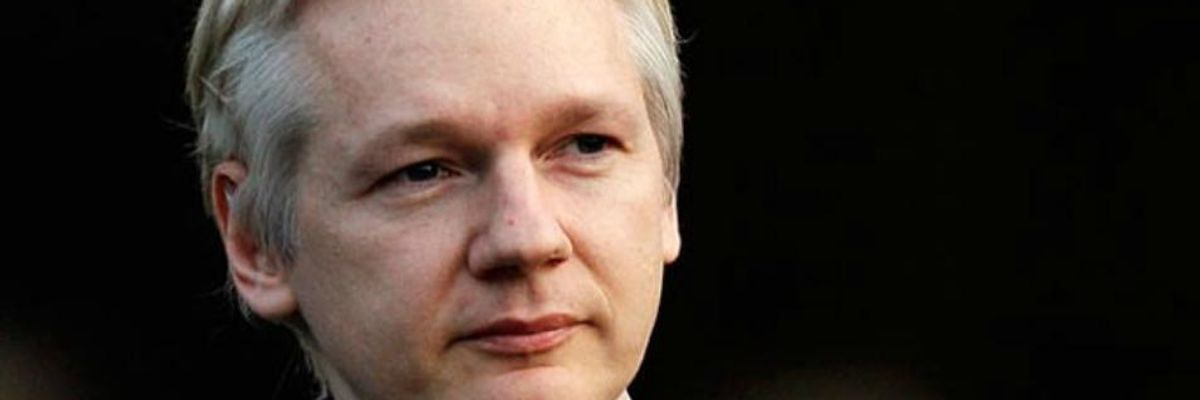Julian Assange is a political prisoner. He has never been charged with a crime. Everyone who recognizes his name should know this, and if they don't it is only because the largest media outlets have misreported or not reported the basic facts of his detention. This in itself is a searing indictment of the media that Assange and WikiLeaks have struggled to reform. It also puts to shame all of the Western governments, political leaders, and journalists who claim to care about human rights and civil liberties but remain silent -- or worse -- about one of the world's most famous prisoners of conscience.
In 2015 the United Nations Working Group on arbitrary detention found that the governments of the UK and Sweden have arbitrarily detained Assange. They ordered his release and compensation.
He is imprisoned in the Ecuadorian embassy in London, where the government of Ecuador has granted him political asylum. He cannot leave because if he does, he will be extradited to Sweden, where he is wanted for questioning in a criminal case in which no charges have been brought. But the real threat is that Sweden would extradite him to the United States, where a grand jury would likely indict him (if they have not already prepared a sealed indictment, which is considered likely). He would be imprisoned pending trial and could face life in prison or even the death penalty. The Swedish government, in particular, has shown no interest in resolving the case for which they had wanted to question Assange -- it took them more than four years to finally decide to question him in London -- but rather have chosen to keep him imprisoned.
What has been Julian Assange's real crime, that these three governments (US, UK, and Sweden) have collaborated to keep him from seeing the outside world? His crime, and that of WikiLeaks, has been the practice of journalism, and particularly in defense of human rights and civil liberties. That is why he has received so many journalism awards, including The Economist New Media Award (2008), the 2009 Amnesty International UK Media Award, the 2011 Martha Gellhorn Prize for Journalism (UK), and many others.
Assange and WikiLeaks' real offense was to expose the crimes of the most powerful people in the world. Thanks to WikiLeaks, millions saw the classified video of the US military gunning down eighteen people in Iraq, including two Reuters employees, in July of 2007. In July 2010, WikiLeaks published the Afghan War Diary, which included more than 75,000 previously secret reports from the US military in Afghanistan. The Iraq War Logs, which recorded over 66,000 civilian deaths in Iraq, were also released by WikiLeaks, and exposed the widespread use of torture by Iraqi forces. The files indicate that the US may have known about this torture when it was turning over thousands of prisoners to Iraqi custody.
The thousands of diplomatic cables published by WikiLeaks in November 2010 -- in collaboration with major news outlets including The New York Times and The Guardian -- also revealed human rights abuses, corruption, and other crimes by various governments. WikiLeaks also developed a methodology for protecting whistleblowers who expose abuses and crimes. Human rights advocates throughout the world have used WikiLeaks documents to challenge governments and defend their citizens in court and in the realm of public opinion.
It is not surprising that the most powerful people in the world, especially in the United States, would want to silence and punish someone who exposes their crimes and atrocities. What is surprising, or should be, is that they could get so much help in doing so.

